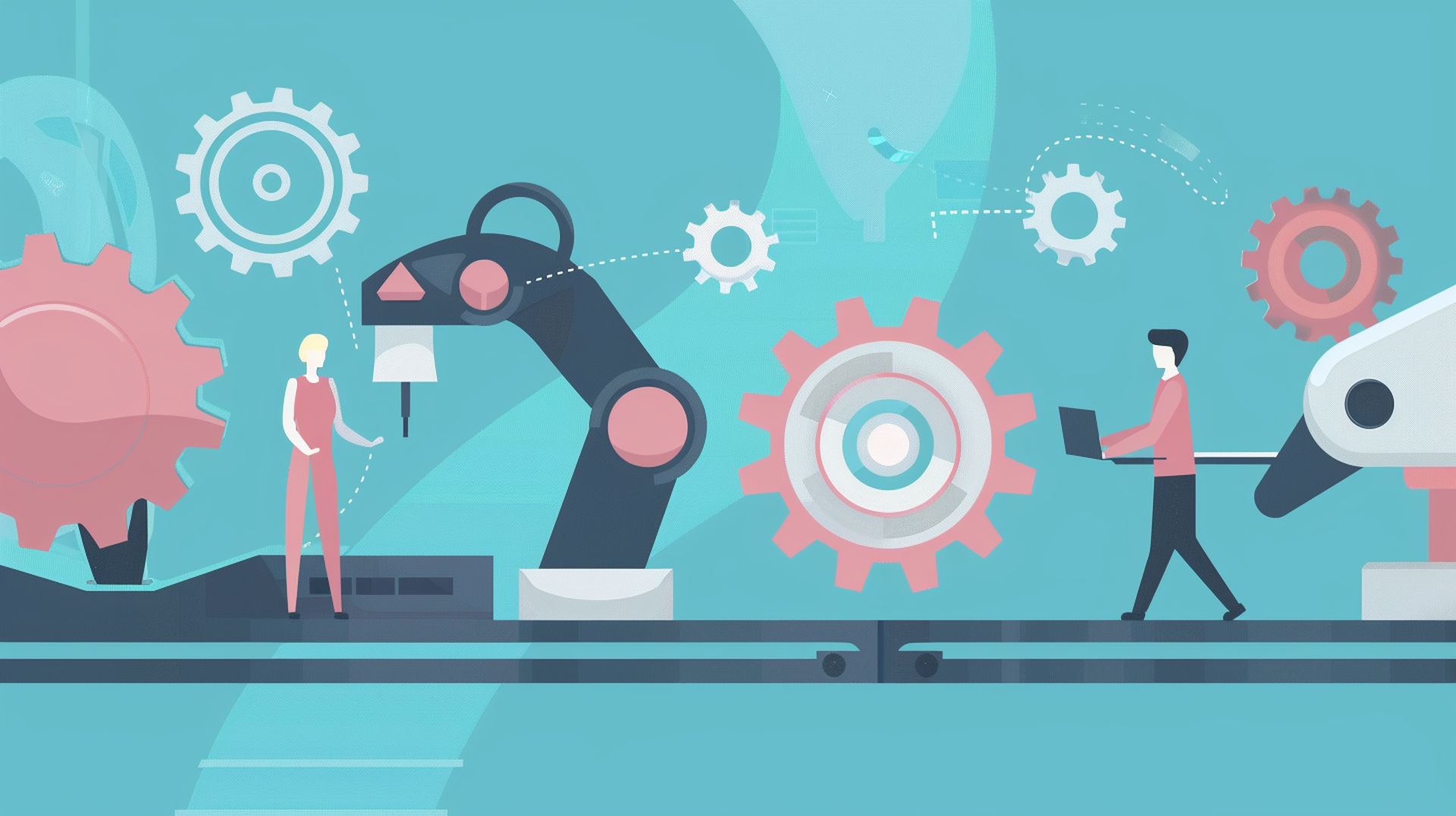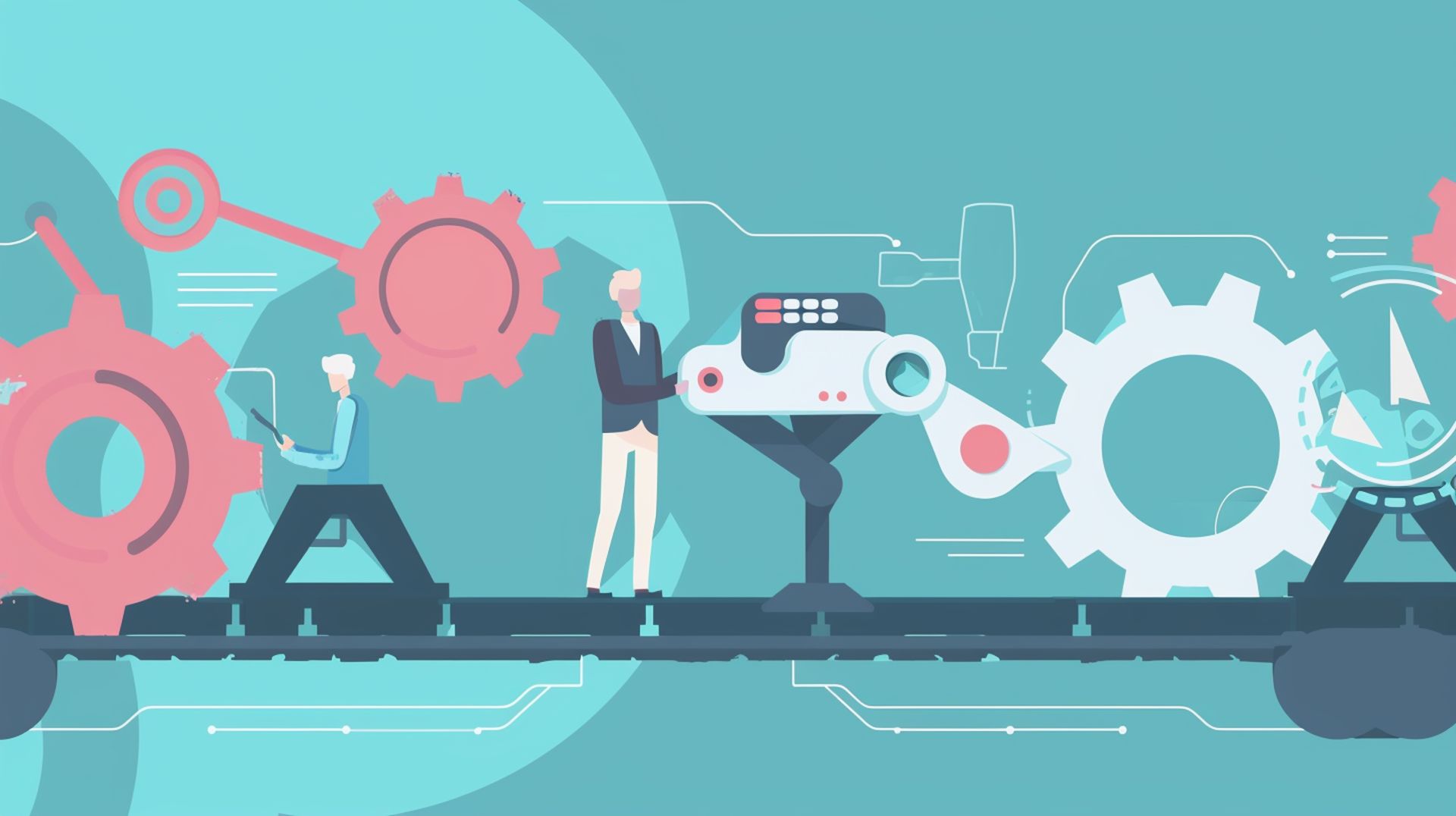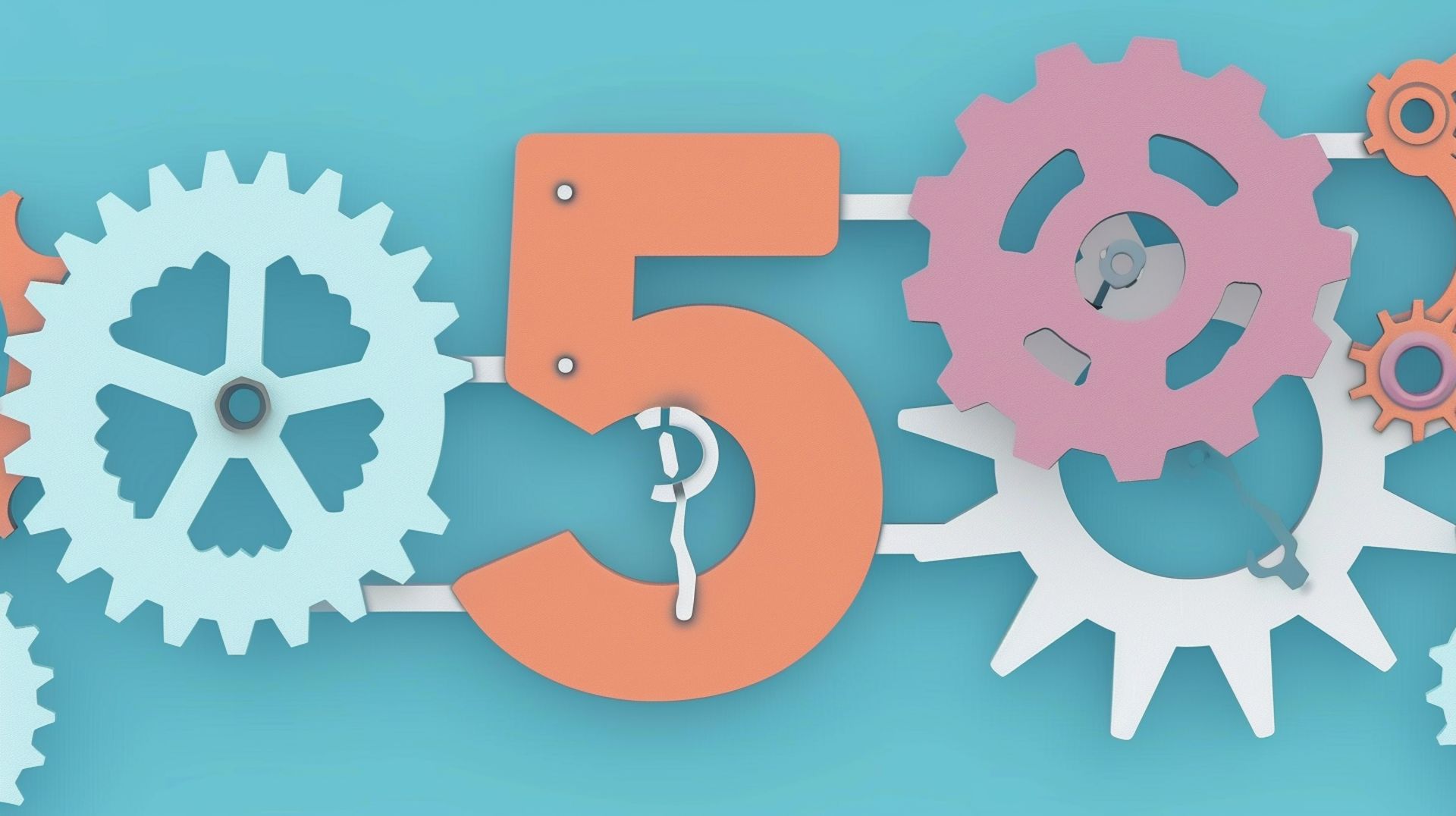Synergized smart manufacturing unleashes human ingenuity with artificial intelligence
Achieving success hinges not just on technological innovation but also on the development and empowerment of the workforce.

29 Mar 2024
5 dk okuma süresi
Achieving success hinges not just on technological innovation but also on the development and empowerment of the workforce. The adoption of artificial intelligence (AI) to refine manufacturing operations has transitioned from an optional upgrade to an essential requirement. Across the globe, manufacturers have embraced AI, driven by its ability to offer rapid analysis, predict downtimes, and recommend maintenance actions. Intelligent manufacturing emerges as a solution to minimize production line impediments and boost operational efficiency.
Human-AI collaboration in manufacturing
The initial step for executives embracing smart manufacturing focuses on its integration. This process involves enhancing traditional equipment with digital capabilities, linking these systems to cloud services via Internet of Things (IoT) devices, and overseeing the associated software. These crucial technologies introduce the intelligent aspect into manufacturing, allowing AI and machine learning (ML) to excel in providing superior data analysis. A really important question for leaders is how this integration will elevate the workforce's proactivity and expertise.
Before the advent of fully automated factories, most companies will utilize intelligent manufacturing to derive actionable insights that accelerate their growth. This will amplify rather than diminish the role of human workers. Decision-makers must value their workforce and weave intelligent manufacturing techniques into their organizational fabric.
As businesses focus on establishing the appropriate network infrastructure for their digitally transformed production lines, the impact of these changes on line workers might be underestimated.
Picture a scenario in which a business introduces innovative visualization technology for its raw materials, aiming to achieve thorough insights before their use in the production line. As these technologies come online, it becomes essential for the assembly line workers to familiarize themselves with the new processes and commence the operation of the visualization tools.

Yet, they may experience apprehension about using the new technology, question the necessity of this additional step, and doubt the significance of the changed workflow. Consequently, the success of the implementation could be jeopardized as the human aspect is neglected, and this is possible with trusted partners.
For instance, İnnova’s SkywaveFactory changes the course of manufacturing processes with its intelligent factory system, upgrading production machinery, facilitating in-depth analysis of factory data, and providing AI-driven solutions like predictive maintenance. This platform supports every employee simultaneously, enhancing both efficiency and productivity across the board.
Before rolling out new technology, managers must ensure workers comprehend the overarching goals and rationale behind these decisions. Without adequately preparing and engaging frontline workers, the potential of intelligent manufacturing could be significantly undermined.
Generative AI as a problem-solving tool
Generative AI tools are transforming how we approach problem-solving and idea generation. They serve both personal and commercial needs by facilitating the rapid development of ideas, some of which may be more innovative.
Imagine the potential of tailoring generative AI specifically for the manufacturing sector, a ChatGPT designed exclusively for factory use. The industry has begun to recognize the value of these tools, leading to the creation of industry-specific versions. They could assist managers with immediate solutions to machinery-related queries, eliminating the need to sift through extensive manuals. This capability allows teams to address problems in minutes, not hours.
In this context, generative AI doesn't aim to replace human workers or fully automate production lines. Instead, it's integrated into intelligent manufacturing processes as an invaluable tool for workers, enhancing their productivity and effectiveness. Several firms are already providing artificial intelligence solutions tailored to manufacturing, allowing businesses to empower their employees by selecting the appropriate provider.

İnnova developed İnnovAI-PdM to provide this advantage. This solution proactively addresses issues before they disrupt operations, ensuring a seamless flow. It oversees and evaluates any single device or cluster within your organization, identifying potential malfunctions before they happen and facilitating timely corrective actions. Predictive maintenance significantly reduces downtime in your service delivery or production processes, thereby preventing revenue loss. Anticipating problems beforehand and strategizing operational responses enhances overall efficiency.
Benefits of having “smarter” teams
Integrating cloud-based observability into any organization enables teams to efficiently collect, manage efficiently, and access data to boost profits and remain competitive. Organizations unlock new potentials and innovations through the synergy of human intelligence and artificial intelligence.
Swift and precise data interpretation
Staff often compile data-driven reports detailing daily, weekly, and monthly outcomes to facilitate communication and keep all parties informed. Traditional tools like spreadsheets have facilitated this task for some time, yet artificial intelligence enhances it with unparalleled precision and rapidity.
Linking machinery to cloud services ensures constant access to comprehensive, up-to-date insights, allowing managers and staff to compile reports swiftly. This advancement eliminates laborious reporting, freeing up vital time for key personnel to focus on more critical aspects of operations. It also ensures well-informed leadership about production efficiency.
Predictive insights for streamlined operations
A common manufacturing hiccup is delays caused by equipment malfunctions. Artificial intelligence equips leadership and on-site supervisors with the capability to foresee potential downtimes and propose preemptive measures, such as scheduling maintenance before equipment failures occur. This proactive approach minimizes disruptions and ensures continuous operation by keeping managers aware of the maintenance needs for each piece of equipment.
Advancing from adequate to exceptional
Artificial intelligence plays a critical role when production lines exhibit inefficiencies or when there is potential for enhancement. Seemingly minor oversights, such as skipping quality assurance processes, can lead to significant repercussions, including material waste or the production of defective goods.
In intelligent manufacturing settings, every facet of production is converted into data for meticulous scrutiny. The introduction of AI into this environment means these systems can offer recommendations for managerial actions that boost shop floor productivity. Accumulating more data leads to better-informed suggestions, providing more precise and timely insights. This, in turn, fosters a more productive and content workforce at all levels.

Five reasons to go smart in manufacturing
- Automate routine tasks to redirect focus towards creativity and complex problem-solving, thereby enhancing productivity.
- Leverage real-time analytics to make swift, informed decisions that optimize production processes for improved outcomes.
- Schedule preventive maintenance based on predictive insights to minimize downtime and maintain a seamless production flow.
- Implement real-time quality monitoring to ensure product excellence and reduce waste.
- Enhance workplace safety and reduce monotony to create a more engaging and satisfying environment for employees.
İlgili Postlar
Technical Support
444 5 INV
444 5 468
info@innova.com.tr









